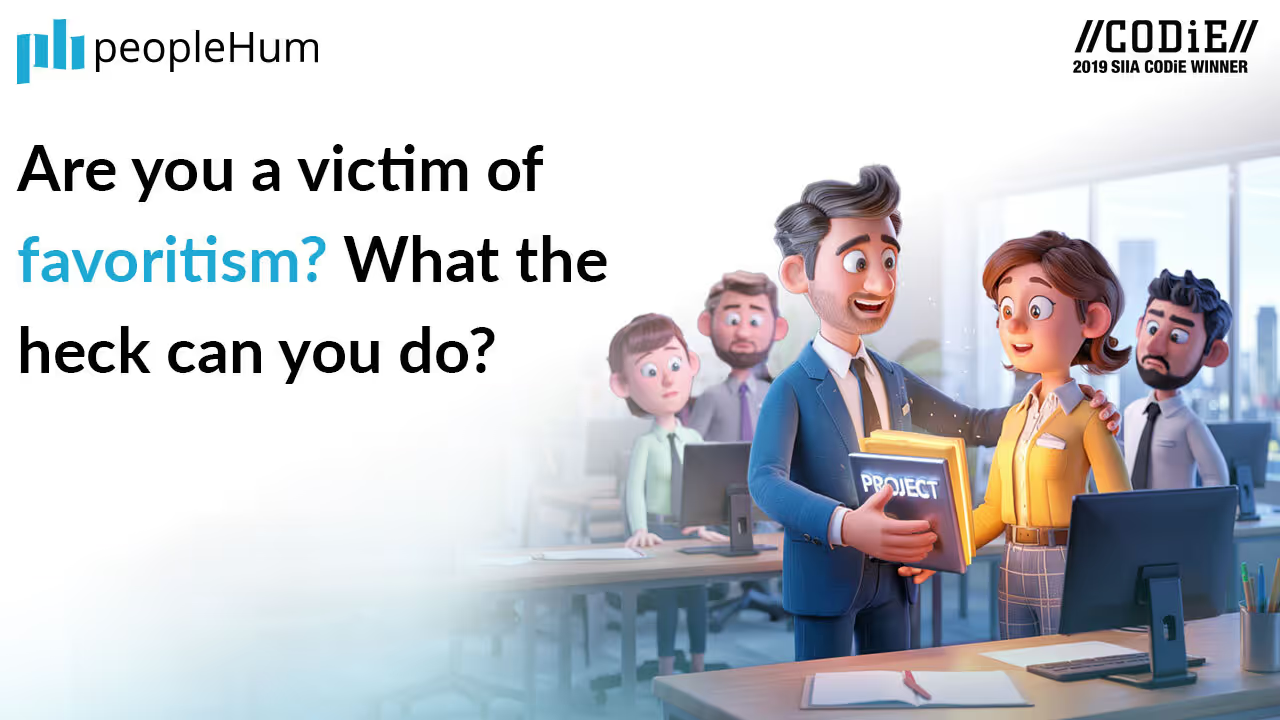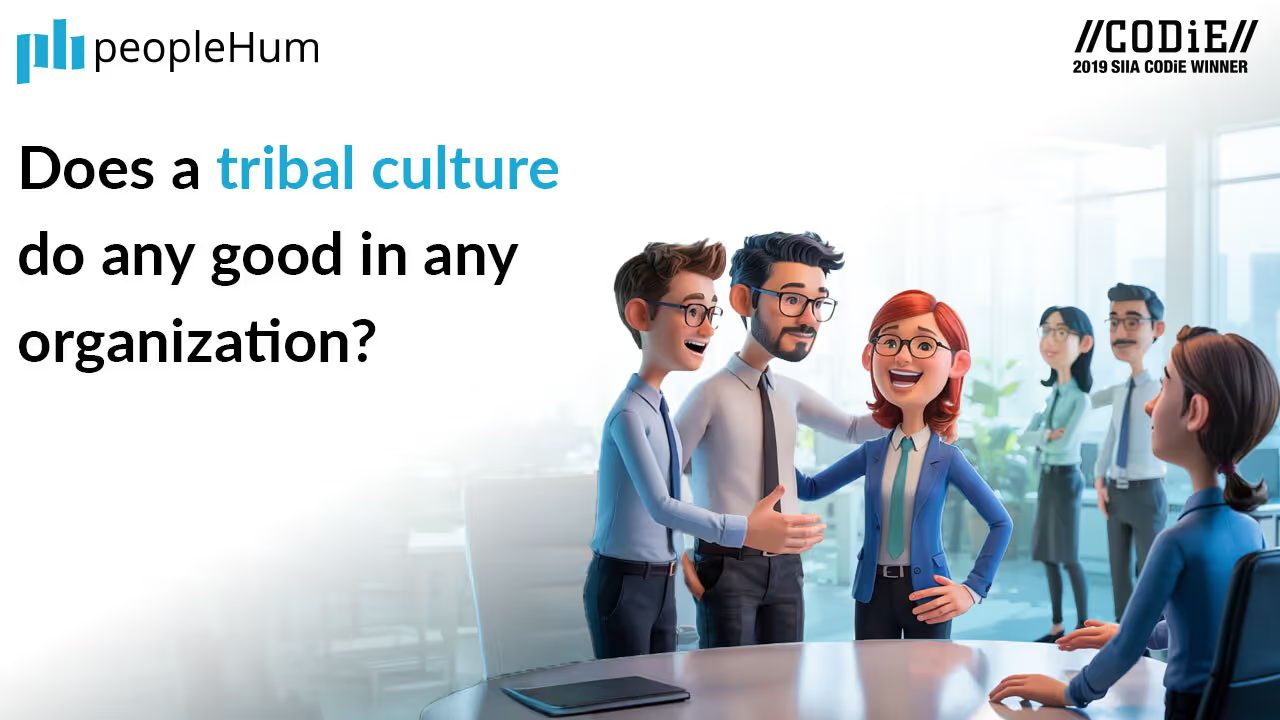We have all seen it. That one colleague who gets all the good projects, and the special treatment, meanwhile you others are grinding away at the desk, going above and beyond, meeting deadlines. We’re not talking about hard work, not paying off. We’re talking about the blatant in-your-face, “I’m the favorite and everyone knows it” kind of situation.
This is the soul-crushing world of workplace favoritism, where who you know trumps what you do. Favoritism isn’t just annoying, it’s a business killer, and we’re diving into what it is, why it happens, and how to shut it down for good.
What is this “Favoritism in the workplace”, really?
Favoritism in the workplace is when someone gets special treatment, not because they’re a rockstar at their job, but because they’ve got some kind of “in” with the decision-makers. Maybe they’re the boss’s golf buddy, or they’ve mastered the art of flattery. Whatever the reason, it’s not about merit. It’s about bias, and it’s as old as the water cooler.
It’s about access, opportunities, and recognition. When those things are handed out based on who the manager likes, who they went to lunch with last week, or who they bonded with over a weekend sports game, that’s where the trouble starts. It makes people question their own value, their hard work, and the entire system they operate in. People stop trying to be excellent because they know excellence isn’t the currency that buys success. Brown-nosing is. And that’s a terrible place for any workplace to be. It is often a silent killer, not a written policy. It’s a series of small, seemingly insignificant actions that pile up over time.
Why Do Managers Play Favorites?
Favoritism doesn’t just pop up because someone’s feeling extra generous. It’s rooted in human nature, bad systems, and sometimes just plain laziness. Here’s the lowdown on why it festers:
1. Humans are wired to play favorites
We’re all a little biased. We gravitate toward people who remind us of ourselves, share our quirks, or stroke our egos because managing people is hard. It requires a lot of emotional labor, objective decision-making, and tough conversations, so he's chosen to whom things don't have to be explained twice, or they might just favor someone who laughs at their terrible jokes or went to the same college. But when “likability” in any sense, starts trumping competence, you’ve got a problem.
2. Personality and "Cultural Fit" Gone Wrong.
If your company’s performance reviews, promotions, or rewards are as clear as mud, favoritism creeps in. Without transparent criteria for who gets what, managers can hand out goodies based on vibes instead of results. It might be because of the similar sense of humor, the same hobbies, or a shared background.
3. “The mini-me syndrome”
A manager sees a younger version of themselves in an employee. They see the same ambition, the same drive, the same way of thinking. They want to mentor this person, to guide them, to see them succeed. It's a noble impulse, right? Except when it comes at the expense of everyone else. The "Mini-Me" gets opportunities, advice, and a leg up that others, who may have different but equally valuable skills, are denied. This isn’t malicious; it’s just a blind spot. A very costly blind spot.
5. Office Politics
Every workplace has its tribes, the cool kids, the old guard, the newbies. When leaders only reward their inner circle, it creates an us-versus-them vibe. Suddenly, it’s not about what you do but who you’re buddies with. It’s high school, but with paychecks.
Is favoritism in the workplace illegal?
The answer is both simple and complicated. In a nutshell: no, it's not illegal. It's just bad management. However, favoritism can become illegal if it's based on a protected characteristic like race, color, religion, sex (including gender identity and sexual orientation), national origin, age, disability, or genetic information.
So,if the boss is giving Chad all the good assignments because they’re drinking buddies, that’s not illegal but if a manager gives all the plum projects to the young male employees and none to the older female employees, that’s not favoritism. That's potential age and sex discrimination, which is absolutely illegal.
Even when it’s not illegal, favoritism can still tank your company’s culture. It erodes trust, spikes turnover, and makes your workplace feel like a rigged game. For HR, the challenge is spotting. Keep an eye out for patterns if all the favorites happen to be from the same demographic. That’s when you need to lawyer up and dig deeper.
Examples of favoritism in the workplace
Favoritism isn’t always blatant, but once you see it, you can’t unsee it. Here are some classics you’ve probably witnessed:
- Golden child: One employee gets all the high-profile projects, even though their work is mediocre at best. The one that gets them face time with senior leadership and gives them the chance to shine, meanwhile, your top performers are stuck with grunt work.
- Free pass for not showing up: The rules are the rules, right? Not for everyone. The favorite consistently shows up late, takes extended lunches, and gets “work from home” whenever needed. If anyone else did it, they'd be on a Performance Improvement Plan.
- Promotion paradox: Someone climbing the ladder as a sudden promotion is announced for the manager's favorite, who's barely competent, isn't the most experienced, nor the most qualified. They were just the most liked.
- Social club: The boss only invites certain people to lunch, or “strategy sessions” .They get invited to after-work drinks or social events that the rest of the team is not.It creates an “in-group” and the out-group feels completely undervalued.
- Credit stealer: When the team succeeds, the manager gives all the credit to the favorite, even if the employee did a small fraction of the work. The favorite might be given the opportunity to present the team's work as their own, getting all the glory for a collective effort.
How to deal with favoritism in the workplace:
If you’re an employee dealing with this, you probably feel powerless. Emotional responses will only make things worse for you. Talk solutions. Fixing favoritism isn’t about waving a magic wand or firing everyone. It’s about building a workplace where merit actually matters. Here’s a more strategic, less dramatic way to handle it.
1. Call it out, without starting a War
You can’t fix what you don’t acknowledge. If you see favoritism, don’t sweep it under the rug. Have a real conversation with the manager involved, not accusatory, but direct. Be data-driven and focused on fairness. If they get defensive, don’t back down, calmly push for transparency.
2. Build crystal-clear systems
Vague processes are favoritism’s “favourite”.Create systems for performance reviews, promotions, and rewards. Use measurable metrics like KPIs, project outcomes, or client feedback not “gut feelings.” Make sure everyone knows the rules and how they function. This isn’t a tale; it’s about building a case with data, not just feelings.
3. Train managers to spot their own bias
Most managers don’t wake up thinking, “I’m gonna play favorites today!” They just fall into it. Run workshops on unconscious bias and make it real,use examples like favoring people who share their hobbies or communication style. Make sure they evaluate employees based on performance, not personal relationships. Make them confront their own biases, whether conscious or unconscious.
4. Empower employees to speak up
Employees need a safe way to report concerns without fear of retaliation. An anonymous feedback system, a confidential HR, can be incredibly effective. The key is to make it clear that these channels are not just for show. When a report is made, you must investigate it and, if the evidence is there, take action. This builds trust in the system and empowers employees to speak up.
5. Reward merit, not butt-kissing
Shift the culture to celebrate results, not relationships. Recognize employees who deliver publicly and often. If someone’s killing it, give them a shout-out in the company newsletter or a bonus that actually means something. When people see hard work paying off, they’re less likely to feel like they need to play politics to get ahead.
HR needs to own this
Favoritism isn’t just a manager’s problem; it’s HR’s problem too. HR’s are the one who knows the grumbling, sees the exit interviews, and knows when the vibe’s gone sour. It’s about making sure the workplace doesn’t turn into a popularity contest.
It’s a culture killer that drives away talent, tanks morale, and makes HR’s work way harder than it needs to be. Clear systems, honest conversations, and a commitment to fairness can turn your workplace from a high school fest into a place where people actually want to work.





































.avif)












